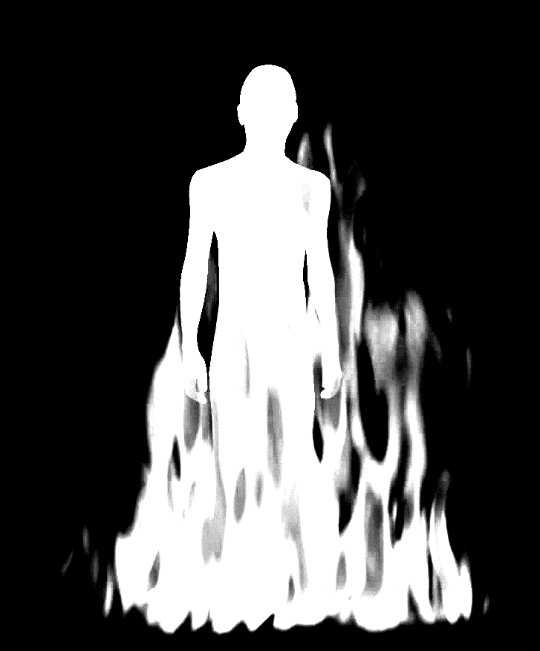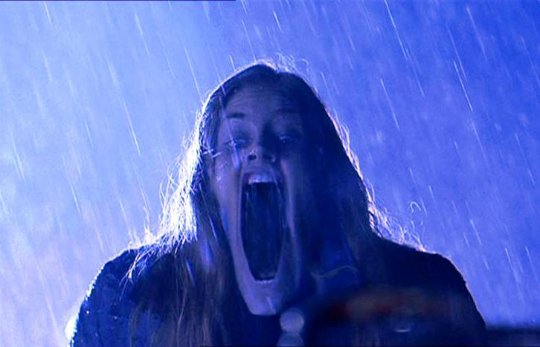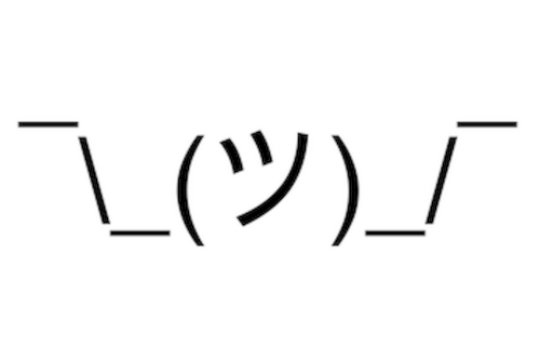A Split Spelling Personality Brought On By Americanization
I have had a growing schizophrenia inside my head of late, the more I type, the more my personality splits. The reason is, that damned red squiggly line. Changing the settings doesn't work, the line goes from my screen, but not from my mind.
Sweat starts to form on the corner of that little bone just above my left eyebrow; I have been struggling with this sentence for the last five minutes. I know I'm wasting time, this article has already taken two days... OK, so focus, is it candour or candor? What looks better, bearing in mind I just used colored, if I switch will they notice?
Will they think I'm mad....?
Palpatations
It's 4 a.m. I have to finish this article, check the facts, proof read; so why can't I decide between centered and centred? I prefer centre I think, although centered looks better, can I do that? Can I say make sure the centre of the plate is centered over the hob? Can I be that schizo in public?
Heart rate rising....fingers sweating.
I need to make a decision, I'll take out center and swap it for middle, that way I can keep centered in there; ahhhh yesssss, that's it, the words fit, they look good, let's move on.... oh, no wait, we can't.
I'm sure I want this to be specialized, ugh, I usually hate zeds when ising a word, you don't say realize do you?!
Well they do...
OK, in this context, you can allow yourself specialized, because of that zed earlier, let's see now...
The decentralization of power in the Byzantine empire was preceded by a specialized...
No, no, no
It should be decentralisation and specialised, right, ok... that's it
The decentralisation of power in the Byzantine empire was preceded by a specialised...
Hmm, that looks wrong as well, how about...
The decentralisation of power in the Byzantine empire was preceded by a specialized...
No
The decentralization of power in the Byzantine empire was preceded by a specialised...
Um, go with the first one, you're English, that's the way you'd spell it, go with that one, right.
No
It's not healthy to spend this much time over one frickin line! Arg! I'm saying fricking now?
Or is it frickin?
Shit.
Why it Matters - The Alchemist's Dream
OK, that's a bit of an exaggeration for dramatic effect; whilst I don't spend minutes deciding whether a word should be spelt the English or American way, it does to some extent bother me.
Although at this point, I should point out that I have nothing against the myriads of accents within America; I love the cutesy Minnesota accent, and the way people from New Orleans, say New Orleans. It's just that these days as I write, I sometimes flip effortlessly between American and English colloquial spellings, but at others not, and like I say; that bothers me.
Words are all I have; without them I cannot communicate my inner thoughts to you or anyone else. Each word I write has to fulfil a criteria, where by it is part of the overall flow and feel to the story. The words have to sound right, and they have to look right, so the way a word is spelled, is very important to me.
Recently, @razvanelulmarin kindly referred to me as a words alchemist, which I must say, greatly humbled me, and I thank him now for his kind words. When he said those words to me over the chat channel, I started to think about them, and what alchemy meant, and more importantly, what it meant to me.
As I thought about it, I realized that Raz was right; what I do, and indeed anybody who regular writes for an audience, is indeed alchemy.
Alchemy, in this context, is the process of using words to create a piece of entertainment, that speaks to a reader in a unique voice. Causing you to be enthralled with my writing; compelling you to hear my story, and though I may use images, it is ultimately the way I weave my words, that will keep you encapsulated.
So each word in the alchemist's dream, is spun, examined, reexamined, exchanged, deleted and reborn. Whether it is the spelling, or the actual usage itself, no word has any less importance than any other, be it a simple I, or a captivating You, each one is equally important. Without just one of these words; the story is incomplete.
Perhaps in the same way the alchemists of old were chasing their dream, the nexus of their desires; the elusive, yet tantalisingly close, transformation of one metal; lead to another, gold. So too, I am chasing the seemingly impossible dream, of the perfect body of text that contains not one superfluous word. Every term, phrase and etymon, containing the necessary strength and gravitas to carry the weight of the ones before and yet to come.
So; yeah, it kinda does matter; you know?
Americanisation - Americanization- Americanisation - A Very English Problem
I don't speak in an American accent, it's just that, I'm starting to write in one, sort of, not really, but kind of yes. If you get my drift...
~ Cryptogee
This is a genuine problem, I feel like one of the X-Men in the middle of a strange, and painful genetic mutation, I can feel it writhing deep down within, warping, and changing me beyond all recognition. It feels like I should be down on my knees, whilst clutching my head in my hands and screaming (Preferably in the rain), as something unholy burst forth from the depths of my bowels. ...
Forward The Evolution
Things change and that's fine, however large scale social drivers like etymology, don't just change suddenly. Words and meaning in any tongue, are in a constant state of flux, playing out a slow, eternal dance, in synchronous development over the lifetime of the language. Change clearly happens at a micro level before it happens on the macro scale, this has always been the case, and as the mediums with which we communicate, multiply, so too does our language. However this isn't a smooth even, across-the-board transition, it is Asymmetrical, jerky and clunky, at best.
Back in the days when the world was viewed in black and white, and people walked around at 8 frames per second, and beyond the time that colloquial language was disseminated entirely by human migration. The evolution of speech patterns propagated with a greater symmetry, through the medium of the glorious silver screen.
The film with the biggest audience in UK history, is the 1938 classic, Gone With The Wind. Thirty five million people went to see that film. Think about that for a moment; 35 million people seeing a film, in a country of (at the time) 47 million people.
So in other words, if you were an adult living in England in 1938 the chances of you knowing someone who hadn't seen the film, were fairly close to zero. In fact if you take a look at the top 10 largest UK cinema audiences, only 3 of the attended films were made after 1976, with only one; Harry Potter And The Philosopher's Stone, released this century.
So what do those statistics mean; and how did they effect the way we spoke in England at the time? No doubt certain colloquilisms that were either entirely new, or variations of native sayings, were introduced into our general lexicon.
Over the years, phrases like God Damned!, morphed into Goddam!, the meaning for gay, morphed from meaning happy to being homosexual, also new phrases were introduced, such as: hi, so long, and what's up?
It can be reasonably argued, that film was the first medium that started to change the way England, and possibly the world spoke.
Then one day in the 1950s, along came film's kid brother; TV. This young upstart , aped his bigger brother film, and would copy and borrow speech intonations seen on the silver screen and transpose them to the cathode tube. This at once, both reflected and directed the new lexicon of UK society.
But you weren't finished there America. Oh no, not by a long chalk.
If Music Be The Food Of Love
Setting aside racial stereotypes of one race being more or less rhythmic than another, as human beings, we all intrinsically have rhythm. By that I mean, we can all appreciate music; whether you are a, demon dancer, or have two left feet, you can hear, feel, and appreciate music. Even people who are tone deaf, have no problem appreciating music; just recreating it, as programs such as The X-Factor testify to.
It seems that we have taken the evolutionary basic function of using song to attract a mate; and developed it into a multifaceted tool, that has played a key role in human social development. So it is of no surprise that music, and more to the point, American music has shaped our etymology on a grand scale.
Again if we look back into recent history, we will see a diverse mix of musical delights that our grandparents listened to. However it is not until after the Second World War, that the explosion in American industrialism, also brought with it, an explosion in music. With the help of television, it was now possible to be a global recording artist, earning sackfuls of money.
If we add to this that English is the international language, then it is obvious that wherever possible, recording artists from around the world, will sing in American-accented, English.
At first, back in the day perhaps it was possible to be a worldwide musical superstar, singing in your native non-American accent. Tom Jones is one artist that springs to mind, that has attained global notoriety singing in his native accent. Although if you listen to Jones in the 60s and listen to him now, you'll hear a change. That Welsh accent whilst still there in speech, has pretty much disappeared in song.
So, as first implied above; singing has become Americanised as well, what left for the last bastion; the written word?
Bjork is another international artist who sings in her own accent, but she's just...well..you know...
Bjork.
Let's Talk About Text Baby
Ah the written word; indeed the last bastion of the English language; the very own Queen's English. This was the last respite for the beleaguered grammar Nazi; attempting to fend off the American invasion. Here at least he could find solace in the fact that the language he has grown up to love, can forever be held in linguistic perpetuity bound forever in classical English literature.
Not so anymore in the age of the internet, programming languages like Java, have helped to propagate American spelling, then later applications like Photoshop would enter the fray and do the same. Suddenly centre, became <center>, colour became <color>.
At first glance, these small spelling changes seem insignificant; however subtle though they are, the changes have had an effect. Americans as far as I'm aware, have always spelled the word centre, with the last two letters reversed and the word colour without a 'u'. However that didn't really effect anyone living in the UK till modern computing.
Fast forward a few decades and those first drips of change, have transformed into a tsunami. Google is the number one search engine and browser, add to that the amount of American based programs that are used on a daily basis, we are now in the third stage of the Americanisation of speech..
We communicate via social media sites that give us the red squiggly line, if you spell an English word the English way as opposed to the American way.
But what does all this mean; and who will it effect?
Well it means people like me, who have a penchant for grammar-based, OCD, are left sweating over what spelling to use when and where, there are only so many red squiggly lines a man can take!
I guess as we move on, and meaning and spelling is merged and extended beyond what it is today, it will also mean there will be fewer grammar Nazis, which isn't a bad thing .
Finally I suppose it will also mean, that eventually I'll spell every thing that ends in ise, like ize and I'll drop the "U" from colour. For awhile, if you read me and try and guess my accent, I'll sound like an English guy doing a bad American accent or vise versa. So best to read me in your own accent I guess, until I am fully assimilated.
But rest assured, even after this painful grammatical mutation has taken place deep within my soul; I shall never, repeat, never say; 'erbs when I mean herbs, and things will always be orientated, not oriented, and of course math, will forever be known as maths.
For now, I shall leave you with a picture of a member of the British Royal Family, daughter to HRH Prince Andrew and Sarah Fergusson; Princess Eugenie. As you can see, she has clearly without doubt, fully accepted Americanization; I mean - isation...
Till next time.
Catch Y'all Later!
Cryptogee
source: uk population 1938
source: largest film audience in uk history
image source: Fractured Mirror
image source: Princess Eugenie
image source: Mutant5
image source: Simon Vouet - “Woman Playing Guitar” circa 1618-1620
image source: Digital Evolution
image source: Text art
THIS LIGHTHEARTED TONGUE-IN-CHEEK ARTICLE, IS THE FIRST OF A 3-PART MINI SERIES ON ETYMOLOGY, EXPLORING THE MEANING AND ORIGINS OF WORDS AND HOW THEY EFFECT US. LET ME KNOW BELOW, HOW CERTAIN WORDS IN YOUR LIFE HAVE CHANGED MEANING, HAVE THEY CHANGED FOR THE BETTER OR WORSE?







Oh, agony! I live in E. Tennessee, the Southern Appalachian region of the U.S., where a variety of archaic influences still flavor (flavour?) our speech and culture, or at least it still does for the older members of the populace. In my younger years, my then-heavy Tennessee accent (which is NOT a Southern accent, y'all and btw) was an embarrassment for me and I set out to homogenize (homogenise? Damn it! No, dammit! ~sigh) my speech. I succeeded and then realized (I'm not doing it this time) that I had just rid myself of a very important part of my heritage and culture. Now I'm just a blend of it all, so if you read me eventually you may find bits of this and bites of that as I no longer worry about consistently speaking or spelling "proper" American English. I view language now as a work of art, a painting if you will, where one may use Poppy Red in one area and Rose Red in another in order to create the feel and texture needed to express themselves.
Here is a rather interesting article from the West Virginia Archives and History regarding the Southern Appalachian, or Southern Mountain, dialects.
http://www.wvculture.org/history/journal_wvh/wvh30-2.html
Great post, by the way!
Peace
What an entertaining reply @areynolds! You definitely sound like you have the same affliction as me :-) The Appalachian region; isn't that where Max Cady from Cape Fear came from? If so that is one of my favourite (favorite?) US accents. I shall definitely check out your stuff :-)
Cg
Why, yes! Cape Fear is about 8 hours East from me, on t'other side of the Smoky Mountains. The accent is pretty much the same, although some terms differ, and Di Niro did a fair to middlin' job with it. It's a hard accent to mimic accurately, I think, in part due to the fact that it's more than just an accent, it's an entire dictionary of words and phrases combined with the accent that gives it authenticity. Even if the drawl is not there, we can still tell you ain't from 'round here just by the words used. lol.
Thank you so much for your reply, @cryptogee, but I must go now and fetch me a wrap cause I reckon it's going to be a might airish tonight, what with Fall comin' on an whatnot. :)
Peace
Awesome, "a might airish" what a great expression! I'm just imagining sitting down with you on a cliched porch, sippin shine, and shootin the breeze :-)
That's interesting that you say that Di Niro did a fair to middling job, I've always wondered about how good it is; as I love to mimic and recite those lines over and over :-)
Thanks for the link earlier and y'all come back now y'hear!
Cg
I began to feel a little maniacal reading your post! LOL
At this point in time I find myself just vomiting words on a page and I'll clean them up, make them pretty, and edit later...but I'm under no hurried deadline.
I'll keep saying 'erbs but I know a few guys named Herb(-ert, -ie, -alicious) and I simply don't understand the maths thing. An s at the end of math means it's plural - more than one! No... I can't... Math and I don't get along. My Asian half totally let me down. So that's it. Now I need a nap from all the thinking. LOL
Lolz; sorry to induce your mania! :-D
I think I finally understand the whole math/maths thing by the way. You guys got the word "math" from arithmetic, which is singular (though why you don't call it meth is a mystery to me... oh wait). Whereas we take the word "mathematics" and turn it into maths; I think!
Cg
Upvoted and resteemed
Thanks @riosparada :-)
Cg
Up voted and followed from before.
Thanks!
Cg
I am not a native speaker but the hardest one for me to get used to were box and especially schedule (from British to American pronunciation)
Ah yes, pronounced baax and box, and Skedule and Shedule. :-) It's like trying to sing a popular song in your own accent, it just sounds wrong :-)
Cg
I completely enjoyed this post, thank you
You're most welcome :-)
Cg
This post has been linked to from another place on Steem.
Learn more about linkback bot v0.4. Upvote if you want the bot to continue posting linkbacks for your posts. Flag if otherwise.
Built by @ontofractal
Great post! In fact, it was so good that we decided to feature it in our latest newspaper. Read it here: https://steemit.com/steemplus/@steemplus/steemplus-thursday-october-13-the-daily-newspaper-that-pays-you-to-find-high-quality-content